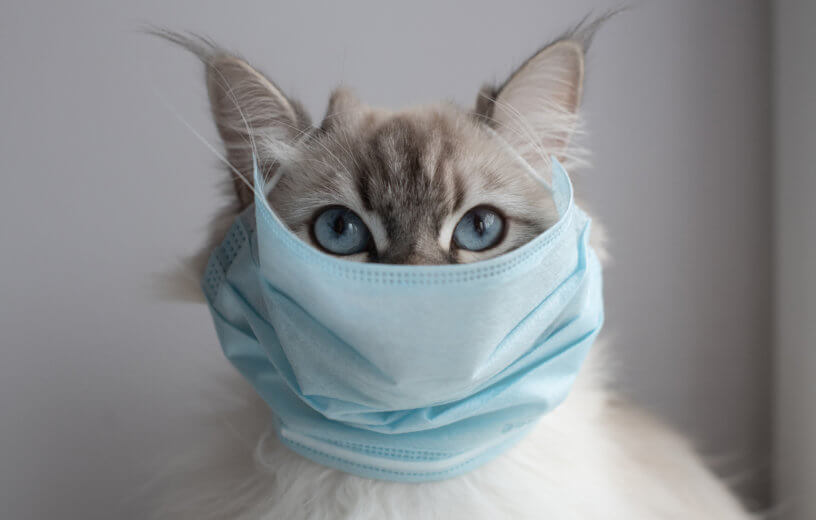WAGENINGEN, Netherlands — Can your friendly neighborhood house cat come down with COVID-19? A recent study finally confirms that cats can contract SARS-CoV-2, the virus that causes COVID-19, and transmit it to other cats and spread it through their environment.
A research team, led by Wim van der Poel, a professor of emerging and zoonotic viruses at Wageningen University and Research in the Netherlands, exposed 16 cats to the virus. The team did this either directly from a naturally infected human patient, indirectly from a directly exposed cat, or through exposure to the infected cat’s pen (their home environment during this study). The cats were regularly sampled during the study period, including nasal and oropharyngeal samples, blood samples, and environmental samples. The researchers also tested the blood samples for the development of SARS-CoV-2 antibodies.
The study revealed that cats are susceptible to SARS-CoV-2, and infected cats can spread the virus to other cats and contaminate their living spaces. Importantly, the contaminated environment was found to be infectious to others. The researchers observed efficient and sustained transmission of SARS-CoV-2 between cats, emphasizing the potential for cats to act as sources of infection. The average duration of infectiousness was determined to be a little over one-third of a day, based on the detection of the virus in oral/nasal fluid or feces.

What does this mean for cat owners?
The findings of this study have significant implications for cat owners and their understanding of the risks associated with SARS-CoV-2 transmission. In a media release, Van der Poel stressed the importance of considering cats as part of the household regarding virus transmission. Cat owners should be aware that infected cats can excrete infectious virus, potentially posing a risk of transmission to humans. While the researchers did not directly expose humans to the infected cats, they highlighted the possibility of cat-to-human transmission and recommended taking appropriate precautions.
As for other animals, the research team plans to continue studying the susceptibility of different animal species to SARS-CoV-2 and further explore the risks of virus transmission. Understanding the role of animals, including cats, in the transmission of COVID-19 is crucial for developing effective prevention strategies and minimizing the spread of the virus. Continued research will help in assessing the risks associated with various animal-human interactions and inform public health measures.
You might also be interested in:
- U.S. officials now believe COVID-19 came from a lab — which scientists suggested 2 years ago!
- Creature comfort: Most bosses open to workers bringing pets to the office after COVID-19
- Friendliest Cats: Top 5 Breeds Most Recommended By Experts
- Smartest Cats: Top 5 Intelligent Breeds Most Recommended By Experts
The study is published in the journal Microbiology Spectrum.

